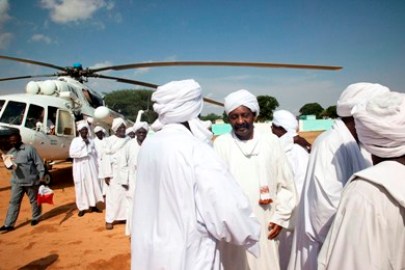Over 300 killed in clashes between Rezeigat and Ma’alia in East Darfur: UN
August 31, 2014 (ED-DAEIN) – The United Nations has said that more than 300 people were killed and hundreds others injured in recent fighting between Rizeigat and Ma’alia tribes in East Darfur state.

OCHA reported that a further 70 Rizeigat and an unknown number of Ma’alia have been injured, noting that Um Rakubah “has been mostly destroyed and women and children have fled to Adila”.
On 16th August, fighting erupted between the Rizeigat and Maalia tribes in East Darfur after the theft of livestock belonging to Ma’alia in Abu Rakubah area.
The Rizeigat attacked the area of Um-Rakoba inhabited by Maalia several times this month. The genesis of the recent outbreak of conflict between the two tribes was a dispute over land ownership claimed by both tribes.
Battles between the two tribes intensified in recent years following oil discovery in Ma’alia areas.
Last month, more than 31 people were killed in renewed clashes between the two tribes.
Armed clashes between the two tribes in 2013 killed over 149 people and forced an estimated 51,000 people to flee their homes and seek shelter in Adila, Abu Karinka and Ed-Daein localities.
The government recently launched a number of conferences to mitigate the tensions and pacify the troubled region. However the spread of weapons and the implication of armed tribesmen belonging to government militias hampered these efforts.
Last July, vice-president Hassabo Abdel Rahman tried to mediate between the two tribes and organise a reconciliation conference in Al-Foula in West Kordofan state.
However, the meeting was cancelled after the Rizeigat rejected the participation of some Ma’alia members, saying they belong to another tribe. The Ma’alia were also skeptical about the involvement of the vice-president who is a member of Rizeigat tribe.
The two tribes also failed to hold another conference scheduled for 10 August
Both the Rizeigat and the Maalia are pastoralist tribes, based in East Darfur. The centre of Rizeigat territory is in El Daein town, while the Maalia centre is in Adila, the second largest town after El-Daein.
Tribal fighting has intensified during the last two years in Darfur and Kordofan regions in western Sudan leading to thousands of dead and injured and forcing over 300,000 people to flee their homes.
The UN resident coordinator and humanitarian coordinator in Sudan, Ali Al-Za’atari, said that tribal fighting became the major source of violence in Darfur following retreat of armed confrontations between government and rebel groups.
Last year, Sudan’s president, Omer Hassan al-Bashir, warned against tribal strife in some areas of the country, noting the country is facing challenges that need the cooperation of all of its people.
“The tribal conflicts in a number of Sudan’s areas constitute the biggest threat to the country,” Bashir said when addressing a meeting of the Shura (consultative) Council of the ruling National Congress Party (NCP).
Several officials in Darfur, including head of the regional authority (DRA) Tijani El-Sissi, also say that tribal violence is among the biggest threats to ongoing efforts to implement a peace document signed by two former rebel groups in the region.
(ST)
